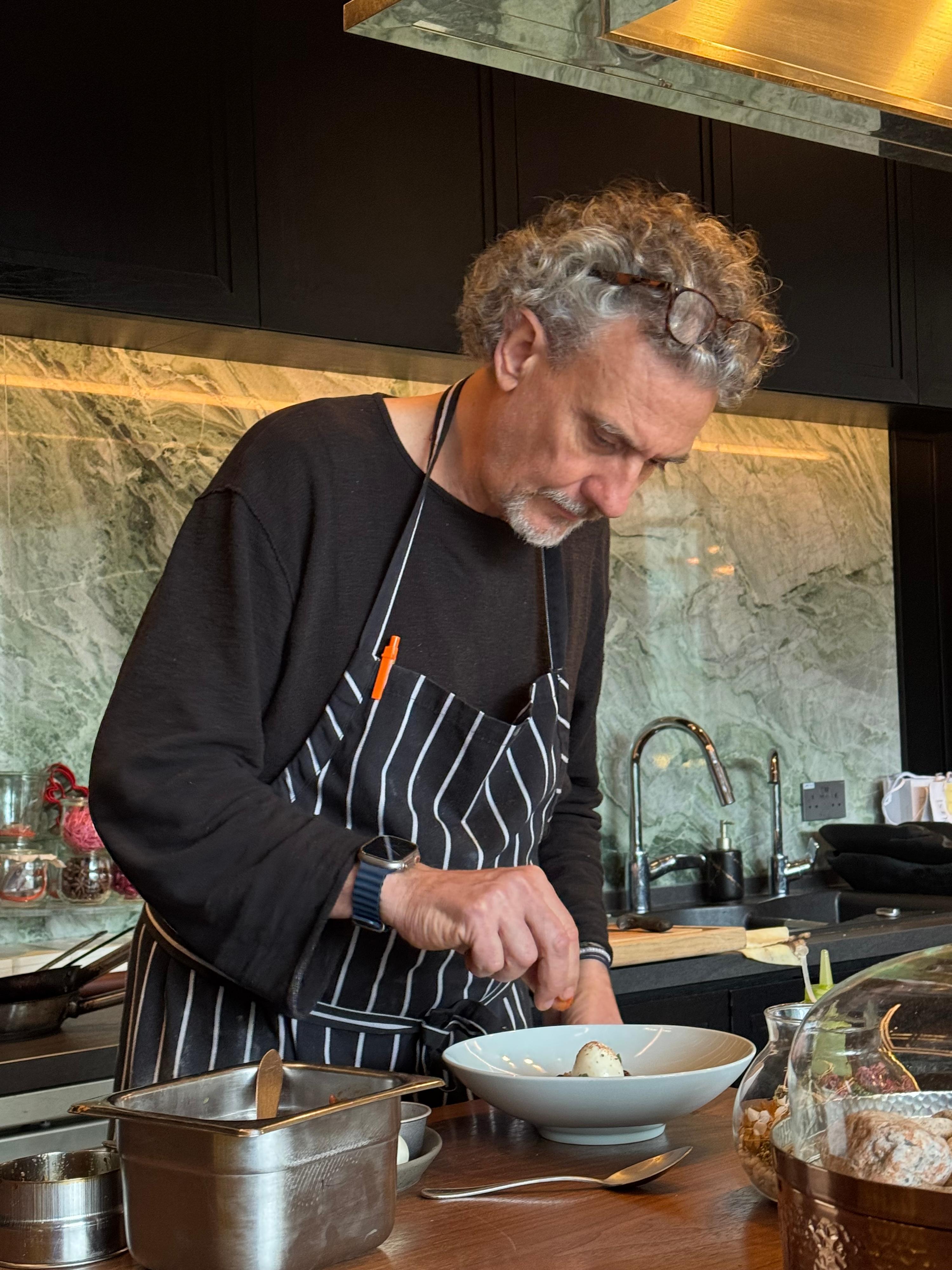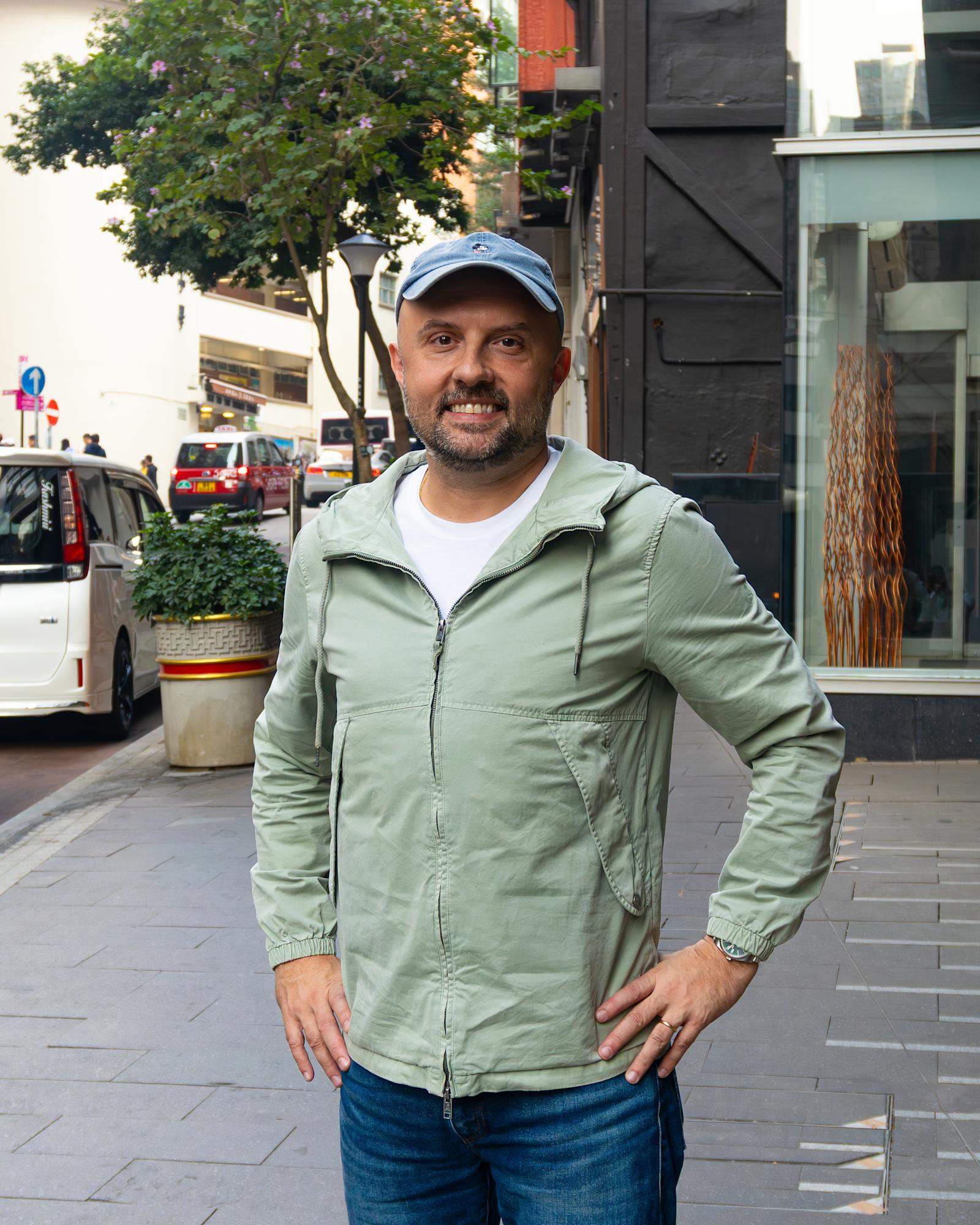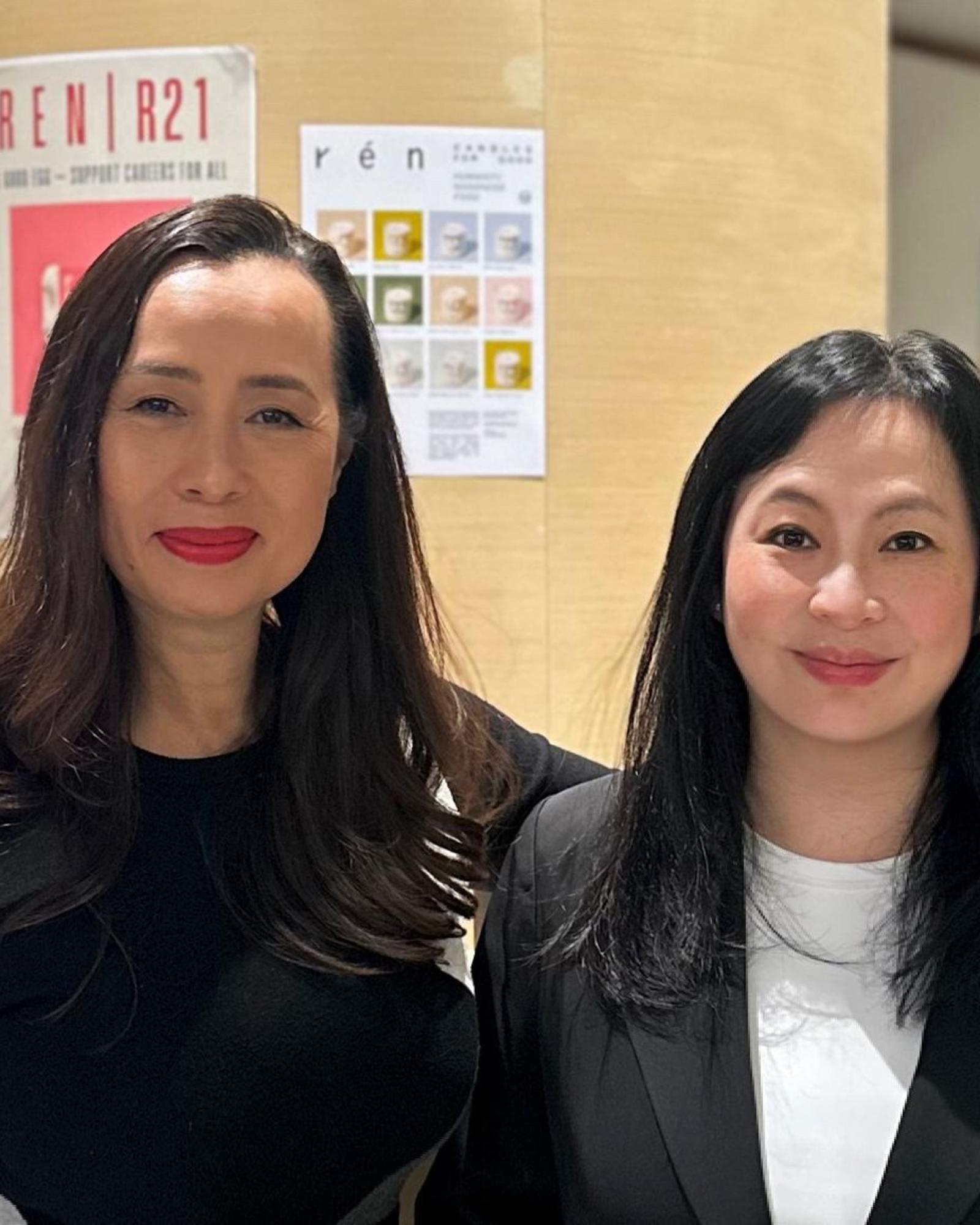Chef Emmanuel Souliere Chooses r é n Eggs for CulinArt 1862
He also hopes to offer employment opportunities to our supported youth.

Earlier this year, we launched our locally sourced r é n eggs in partnership with Kong Lung Hong from Tin Hong Three Yellow Chickens, which boast a carbon footprint 700% times smaller than eggs imported from the US, and now, chef and culinary director Emmanuel Souliere has chosen them for use in Towngas’ restaurant CulinArt 1862.
“I was looking at what local products I could source, because that’s the story we would like to tell at the restaurant,” the chef explains. “When I arrived in January at Towngas, I felt that there was a story of sustainability, but it wasn’t deep enough. In Hong Kong, it’s very easy – and relatively cheap – to source ingredients from all over the world, which is why so many restaurants do it. We won’t make the flights stop, but by sourcing locally, we will not only reduce our carbon footprint but also give the local people confidence in what they’re producing here. It might not be as cost-effective, but the whole system is a chain, and if we don’t support them, the whole thing will collapse.”
“Because of these reasons, my team and I put on our backpacks, and we started visiting all these different farms in the outskirts of the city. Eventually, having connected with different chicken farms in Hong Kong, I learned of r é n eggs, and I thought it would be a great idea to go forward with it. I’m very happy with the product, and I’ve made a few dishes already that people have tried. The feedback has been very positive, so I’m very happy with it.”

Aside from reducing negative impacts on the environment, supporting local farmers and businesses, and having access to some of the freshest eggs you can find in the city, by buying and using r é n eggs, chefs also support our charity’s cause, as part of the proceeds from sales goes towards supporting the disadvantaged and underprivileged youth of Hong Kong. It’s something that’s also of significant importance to Chef Emmanuel, regardless of cost. “Sourcing locally is not cheap, but people are taking more seriously this idea of sustainability,” he tells us. “It also helps support our own community, so why not be part of it?”
Now that Chef Emmanuel has been introduced to r é n and what we do, he also hopes to place some of our supported members in employment positions within his kitchen in the near future, giving them a chance to flourish within the F&B industry, and we couldn’t be more excited for this upcoming partnership.
“Having met with Jo the other day, we’re definitely happy to receive one of the youths she supports through her programmes,” he says with a smile. “My arms are open, because we have the space, and I know we can take great care of them. Cooking can be a great experience, because you’re working with your hands and creating something with them. It can be magical when you take flour and mix it, and bake it, and it comes out as a beautiful cake. It’s definitely a good thing for these kids to experience.”

